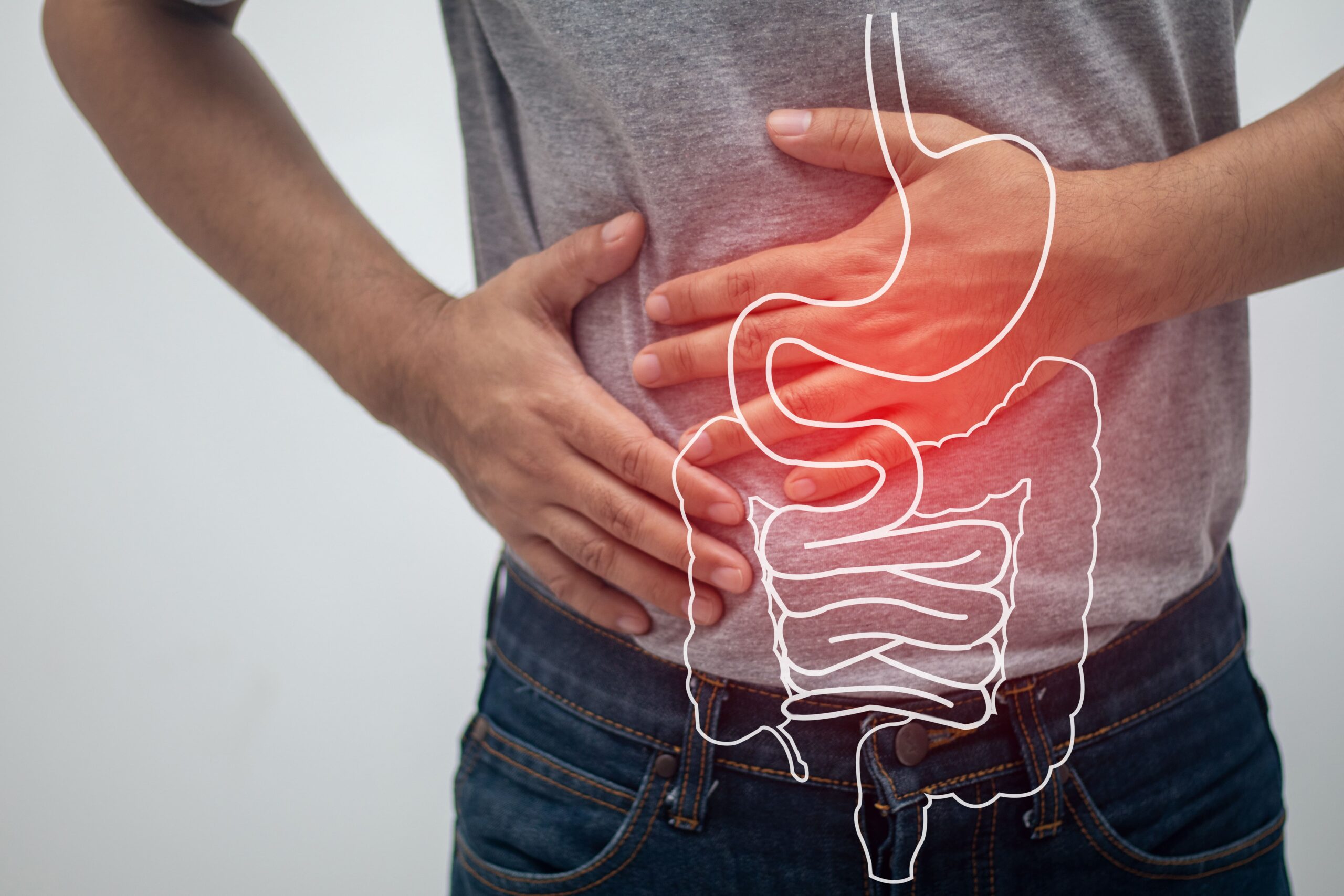GO WITH YOUR gut goes the saying, an acknowledgment of the pivotal role our instincts can play in decision making. But when it comes to your health and wellbeing, you’d be wise to follow the same maxim and prioritise nourishing your gut microbiome.
What is your microbiome, you might be asking. It’s the trillions of bacteria that inhabit the powerhouse that is your gut. The microbiome has been called everything from ‘the second brain’ to the most important organ in your body. Its health underpins your overall wellbeing, impacting your immune system, heart, and weight, in particular.
Yet despite the spotlight medical science has shone on the microbiome in the past 20 years, many of us still unaware of how pivotal gut health is to our overall wellbeing. In last year’s Global Gut Health Survey of 650 people from five countries conducted by Theronomic, 80 per cent were unable to explain what the ‘microbiome’ is. The findings also revealed that almost three quarters of those questioned face gut health concerns, including bloating (35%), digestive issues (one third) and constipation (nearly one third).
While the findings are concerning, there are easy ways to boost your gut health. These include eating a fibre-rich diet and supplementing the bacteria in your gut with a supplement like those from Theronomic, which has just been awarded the NutraIngredients Asia award for product of the year in the microbiome modulation category. and the ABA product innovation award for most innovative consumer product.
Theronomic utilises a potentially gamechanging formulation of tribiotics, which combine probiotics, prebiotics and postbiotics and are the product of years of scientific research. They combine the benefits of pre-, pro- and postbiotics in one formidable compound and are designed to cover all bases regarding gut health.
So, why does the microbiome matter? And how can nourishing it help you achieve optimum health and wellbeing? Let’s find out.
What is the microbiome’s job?
What isn’t its job, is probably the better question, for as far as its list of responsibilities go, the microbiome’s is exhaustive. The trillions (yes trillions, there are more bacterial cells in your body than human ones) of bacteria that make up your microbiome feed on complex carbohydrates and fibres that your body can’t break down on its own. This process produces short-chain fatty acids as byproducts, as well as enzymes that synthesise vitamins and nutrients your body needs to function properly. This nutrient harvest is far-reaching, impacting areas as diverse as your brain and your immune system. Gut health has been linked to mood and it helps your immune system fend off viruses and neutralise inflammation.
The microbiome also has a bidirectional relationship with your liver, known as the gut-liver axis. This involves a reciprocal interaction of signals between the two organs generated by dietary, genetic and environmental factors. As Dr. Ross Walker, the Chairman of The Gut Foundation Australia, explains. “The liver is the major factory in our bodies that processes all of the raw materials being absorbed through the gastrointestinal tract. If we have a healthy gut microbiome, this will then facilitate the absorption of healthy chemicals which, as their first port of call, travel through the liver. We need the liver working well to be able to create all these vital chemicals that are so important for healthy metabolism.”
Why is gut health so important?
When your microbiome is functioning as it should, it’s like a community garden flush with a diverse range of healthy bacteria. But it’s a delicate state and a number of factors can upset the equilibrium.
Antibiotics, processed food and stress are just a few of the things that can change the profile of your gut flora, promoting the growth of harmful bacteria. When the balance of microbes in your gut is out of whack it can lead to bloating, constipation and heartburn. Immune system regulation is also almost wholly dependent on your gut, with more than 70% of the body’s immune cells residing within the region. The balance of good and bad bacteria in the gut also directly influences how well our immune system can respond to threats. An imbalance of gut bacteria has been linked to various chronic conditions including diabetes, cardiovascular diseases and some cancers.
Beyond the physical benefits of having a healthy gut, there also mental rewards to be reaped. The gut-brain axis, which is linked by your nervous system, is deeply connected with emotional wellbeing. Neurotransmitters like serotonin are largely produced in the gut, making its balance crucial for strong mental health. What’s more, bad gut health can cause skin issues like dermatitis and psoriasis, as well as contribute to cancer growth. But on the plus side, good gut health can help regulate your metabolism and assist in weight management.
How can you boost your gut health?
As a preventative tool, you should begin by including more fibre-rich foods in your diet. It’s recommended that Aussie males eat 30 grams of fibre a day, a target most of us fail to achieve. Choose wholegrain, wholemeal and/or high fibre varieties of grain-based foods like bread and pasta. Eat a variety of wholegrains, such as rice, oats, quinoa, barley, millet, polenta and buckwheat and aim to eat two pieces of fruit and five servings of vegetables each day.
While the recommended fibre intake is 30 grams per day, few Australians actually meet that mark, according to Dr. Walker. “In my view all people should be having 2 to 3 pieces of fruit per day and 3 to 5 servings of vegetables per day and sadly only around 4% of the population do so,” he says. “Those who do have the lowest rates of heart disease and cancer in the community and also have the best gut health.”
If you’re worried about your gut health or experiencing digestive issues, such as bloating, you should see a doctor.

Pexels
What are tribiotics?
Tribiotics, as the name implies, are a combination of probiotics, prebiotics and postbiotics. Before we look at what these three bacterial supplements work so well in combination, let’s look at what each of them do.
Probiotics are live microorganisms, primarily beneficial bacteria, that can replenish and support the gut flora. When consumed, probiotics take over your gut, outcompeting harmful bacteria while promoting digestive and immune health. They are found in fermented foods like natural yoghurt, tempeh, kimchi and sauerkraut.
Prebiotics are compounds that feed the beneficial bacteria already present in the gut. They typically come in the form of fibres or plant-based compounds like apples, bananas, whole grains, green vegetables, onions and garlic and act as a fuel source that stimulates the growth of good bacteria.
Postbiotics are the newest addition to the gut health toolkit. They are bioactive compounds produced when probiotics consume prebiotics. These compounds are known to have anti-inflammatory effects and enhance the gut’s barrier function.
Tribiotics combine the benefits of probiotics, prebiotics and postbiotics in one supplement, offering a more effective approach to improving gut health. As Dr. Walker emphasises, “Probiotics work so much more effectively if they have healthy food being fed into the system i.e. prebiotics. Postbiotics are the healthy chemicals created by healthy bacteria. Enhancing these chemicals with postbiotics makes a tribiotic more effective than using probiotics alone.”

How do tribiotics boost gut health?
Unlike conventional probiotics that focus solely on introducing live bacteria into the system, tribiotics take a more comprehensive approach. The blend of prebiotics and postbiotics work together to support microbial diversity by encouraging the growth of a wide variety of beneficial bacteria, helping to maintain resilience against infections.
Tribiotics can also enhance the integrity of the gut barrier, which prevents harmful substances, such as toxins and pathogens, from leaking into the bloodstream. Postbiotics, specifically, have been shown to reinforce the gut lining, reducing the risk of leaky gut syndrome. Postbiotics also play a critical role in reducing inflammation by promoting the release of anti-inflammatory compounds, which can reduce the risk of chronic inflammation, irritable bowel syndrome and Crohn’s disease.
Then there’s the more immediate impacts of optimising your microbial balance and improving gut health. Tribiotics can help alleviate common issues like bloating, constipation, and indigestion – stuff we all deal with at some point – so there’s something for everyone in a tribiotic-harnessing product. For more information of how to boost your gut health, head to theronomic.com.

This article was brought to you by Theronomic
Related:
The Key to Alleviating Seasonal Allergies? Optimising Your Gut Health















